- Home
- Kathryn Lasky
A Journey to the New World Page 2
A Journey to the New World Read online
Page 2
October 13, 1620
Mayflower
1805 miles sailed
Last evening Mam was able to cook over the charcoal brazier for the first time in days. We had a nice supper. It was a flesh day so we could have meat. We did, salt beef with mustard and vinegar, peas, ship biscuit, and Blessing had her favorite: warmed-up oatmeal. I would love a bag pudding or some Frumenty, the kind Mam makes all thick and full of cinnamon. It drips off your spoon so nice and warm. But that we shall have to wait a long time for.
In any case, it is a fine day now. The gray skies have washed away leaving this immense blue bowl over our heads. We have fresh, steady winds, north-easterlies. The monkeys, as they call the sailors who scramble up the masts, were in the rigging and every piece of canvas has been shaken out. Mayflower looks like a many-winged bird with her fore and main courses flying, and the topsails swelling against the sky!
We are allowed topside and I do not feel sick anymore, not one speck of the quissies. We set ourselves in earnest now for the New World!! And not only is the ship’s course set, but I feel that I, too, can begin in earnest with my diary. I have a name for you now. But first you must know your history — how you came to be. I shall write that down tomorrow. For now I want to enjoy the fresh breezes.
October 14, 1620
Mayflower
1825 miles sailed
As promised, here is your story, which began in Holland.
When we be in Holland, and safe from King James, our Ruling Elder, William Brewster, two or more years ago, began to print church books that spoke out harshly against King James and the Bishops. These books had to be printed in secret for it would be most dangerous if it were found out. My mother and father were among the very few who did know.
You see, there came to be a problem with the press, something broke and they asked for my father to help, he being so clever with carpentry and fixing things. My father was given some batches of paper by these people, perhaps as payment for his work. I am not sure. Mam, however, cut them up and stitched them together. With some scraps of leather she got from a cobbler on Rozengracht street she made a cover. Using an awl she pressed my first name into the cover in a most delicate and pretty manner.
That all seems so long ago now. As I sit here in the sliding shadows and putrid smells of this ship ’tis hard for me to believe that there was ever a Rozengracht street, or for that matter a place called Holland. Will and Hummy can scarce believe the stories I tell them about skating on the canals. One must be careful of course when going under a bridge, I explain, as that is where the ice can be the thinnest, especially around the pilings.
I wander off to Holland in my thoughts more and more but I must finish the story as to how you came into my hands. Mam did not give me the book until we were well clear of England and truly off for the New World. I do believe that she was fearful that King James or his men would somehow trace this paper to our family, throw us into jail, and cut us into pieces. For it was said that he had sworn vengeance on anyone connected with the books.
So she waited til Land’s End was but a sketchy line behind us. And then she gave you to me and told me that this was to be my diary. That I must live up to my name and Remember, not just for my own sake but for my children’s and my children’s children and their children’s children. Mam said to me, “This book is to be like your closest friend.” Then she paused and said, “No, ’tis closer than your closest friend, ’tis like another part of you, a true and real part of you.”
If you be like another part of me, then you should share my name. And if that part be a true and real part, it would be false to call you Patience. It would be more honest and real to call you Impatience — and for short I think ’tis best we settle on Imp — so dear Imp, this is your name.
Yours,
Mem
October 16, 1620
Mayflower
1840 miles sailed
Dear Imp,
I want to tell you about Hummy and all the others as well. Hummy is short for Humility. Humility Sawyer. Hummy is exactly my age. She was born on the very same day, August 23, 1608! Now we have been trying to find out what hour. Mam told me that I be born just after midnight on that day. Hummy’s mother died shortly before the voyage began so we cannot ask her—and her father, poor soul, is so melancholy of his wife’s death that we dare not say anything to remind him of her. So ’tis a mystery, the hour of Hummy’s birth.
But is it not as if we were destined to be best friends? There are other things to bond us as well. We both hate spinning and stitchery. We both dared show each other our samplers, and they are both the most horrid messes one can ever imagine. We both love words and to play with them like the time we made a list of all the ways to say cast. And most fun of all we have made up nicknames for nearly all the people on the ship.
Our favorite is Commander Shrimp for Captain Myles Standish, because he is so florid in color and with his bright red hair and small stature he reminded us so of a shrimp.
Hummy and I had never met before we arrived in Southampton. That is where she joined the ship. Hummy is not a Saint. She be what we call a “Stranger.” That is our name for those who are not part of the Saints of The Holy Discipline. We also be called Separatists because we separated from the Church of England. Myles Standish is a Stranger, too, and so is John Alden and the Mullinses and the dreadful Billingtons, though I hate to mention that family with the rest of these souls. For although these people be Strangers they be good folk I believe, except with the possibility of the Billingtons.
In all we are 102 passengers, with just over 40 of us Saints from Leyden. The rest be a few Saints and Strangers from London and parts of England to the south. The Strangers, like Hummy’s father Richard Sawyer, did not come for religion, but for a chance to make a better living.
My own dear mother and father came for all good reasons: first and foremost, religion. In Holland, Sabbath was becoming a sore pain to my parents. For indeed, the Dutch thought of it as a day of pleasure — “unbridled frolicking” were Mam’s words. Oh, they went to church but then they played. Children went about rolling hoops and howling and turning cartwheels.
In the winter they would have skating races on the canals on the Sabbath day! And it wasn’t just the Sabbath that was the problem. When an English girl who lived right down the street from us married a Dutch boy, well, my parents were shocked most awfully.
But the one single thing that really made up my parents’ minds about leaving Holland was Blessing, my baby sister. She is just two and one half now, but about six months ago when she was two or a bit under, guess what her first words after “Mama” were. “Dank-u,” which means “thank you” in Dutch. Mam had handed her some bread smeared with honey, and Blessing reached out with her little chubby hand and said, “Dank-u, Mama.” Well, that was it. You would have thought our dear little Blessing had spoke a curse. Mam nearly fainted. And I remember looking at mother as she stared at this little baby. It was all written right there on her face—visions of her children marrying Dutchmen, going to churches with organ music, giving birth to little bishops or something.
It was only a few short months later we sailed for England and here we be. And we are not just Saints and not just Strangers but I better like the word Master William Bradford did make for us. We all are pilgrims. Two nights ago he used that word when he offered a prayer of thanksgiving for the successful repair of the beam. He said, “Although we have our differences, we are all God’s children and as such we be but specks in the vastness of this ocean, but precious unto our Lord and now together we are voyagers, pilgrims, and look to Thine infinite mercy and providence.”
I like the thought of Hummy and myself, no longer just being Saint and Stranger. For those two words doth pull us apart. ’Tis better to find a word that brings us together and might fit us both. And the word that does that is pilgrim.
That is all for now, Imp. I must go help Mam with Blessing.
Love,
&n
bsp; Mem
P.S. Did I tell you that Hummy has such a dear little face? Her hair is slightly red, like cinnamon. And she has round little cheeks and a round little chin. It is as if she is made all from circles and then sprinkled with freckles.
Later the same day…
Dear Imp,
I have to write to you twice today. I am almost incredulous, but my gentle Mam came close to losing her temper with Elder Brewster. For some time Mam has been complaining to Father that she thinks William Brewster is too vivid in his language when he describes the horrors of King James and his awful Bishops.
Now this evening we be having our supper down below—just finishing a few bites of salt horse and the hardtack when the Brewsters’ young son asked his father some question and it makes William Brewster remember his dear friends from his college days, who were indeed killed by the Bishops for wanting to make the church pure.
“How were they killed?” the boy asked.
“Hanged and worse,” Elder Brewster replied darkly. I felt Mam, who was sitting beside me, flinch.
“They were first thrown in jail for a long long time and left in filth and half starved to rot. Then they were brought out to be hanged.”
“And …?” said the Brewster child. All the other children were leaning forward to listen but Mam just seemed almost frozen beside me, despite Blessing wriggling in her lap.
“And …” He spoke slowly. “Just when they had a few breaths of life still in them, they were cut down. Their bellies were cut open, their guts drawn out and burning coals put in their bowels! That is what the bishops do. Mere killing is not enough.”
Well, Mam, who had been sitting still as a stone, suddenly jumped up with Blessing in her arms.
“Elder Brewster.” She spoke through clenched teeth. “This is not conversation for children nor for anyone sitting at the table of the Lord partaking in the nourishment He hath provided. We do not want our children’s sleep to be troubled with nightmares.”
One could have heard a pin drop despite the creaking and moaning of the ship’s timbers. William Brewster jumped up and glared at Mother. But I saw John Alden smiling gently at her, and then I saw Commander Shrimp give a fierce look toward Elder Brewster. And I tell you the Shrimp tells some pretty strong stories himself.
I think Mam spoke truthfully in what she said. I was proud of her, but it is most uncommon, unheard of, for a woman to speak out thusly. And it disturbed me the way Elder Brewster glared at her, for after all he is the Ruling Elder of the Green Gate Congregation from which we all come in Leyden. It does frighten me, and now maybe instead of the nightmares about how they did hang and quarter those men I might be having others. I shall not forget, Imp, the glare in his eye, and how my mother did not flinch one bit, but boldly met his eyes.
Good night, Imp.
Love again,
Mem
October 17, 1620
Mayflower
1890 miles sailed
Dear Imp,
It is starting to blow fierce again, but so far I feel not a twinge of the quissies. Captain Standish said I looked “pert” when several others were casting and I was trying to help out. I do think that perhaps at last both Hummy and I are used to the roll and the violent pitches, for she is feeling quite fit, too. Master Jones says that we both got our “sea legs” now. Master Jones is very nice, but the rest of the crew is most awful. In particular there is one especially profane sailor. He is the one who calls us “puke-stockings” and goes about bullying all the Saints and making fun of our prayers, cursing us to kingdom come. He speaks often of throwing half of us overboard. And then there is the foul-mouthed old bo’sun. He be not condemning us, but the mighty oaths he does roar at the monkeys in the rigging!! Enough to make your ears bleed, says Will Butten. As awful as these sailors be, I cannot imagine however having to go up into the rigging in these gale-force winds to shorten sail.
Hummy and I and Will B. peeked out of a hatch and watched two sailors go up to haul in the topsails. ’Tis a scarifying sight, I tell you, as we watched for they must swing into the ratlines between the rigging. The ratlines are like rope ladders—then they climb hand over hand to the topsail yard. And once there comes the worst part of all for they have to swing out on to the footropes to start adjusting the sails. There is nothing between them and death but air, a few ropes, and howling wind. They must do this in blizzards and rain and often in the pitch-black of night. There they were holding on for dear life, yet trying to work at the same time, high above the deck of this wildly pitching ship. They could have been flung from the rigging into the deep at any moment.
Hummy and I didn’t know a topsail from a mizzen when we first came aboard. But Will, he knows everything there is to know about sailing ships.
It must be admitted ’tis not an easy life these sailors have. Still they should be nicer to us and not cheer every time we puke. Yes, they often do that!!
’Tis hard to write with all this pitching. But I should tell you a bit about Will Butten. He is Deacon Samuel Fuller’s servant. Deacon Fuller is also our surgeon and he does much cutting and bleeding and Will helps him with it. But Will says it does give him the quissies and he has to fight to keep his eyes open because he cannot stand the sight of blood. Hummy and I think he is the best and most clever boy. Always a cheerful word and often times he helps the women with the babies. He has a gentle and calm way about him and he knows ever so many finger games that he plays with the babies. Blessing just takes to him so. He be a few years older than Hummy and me, but we all like the same things and he likes our word games and especially the nicknames we think up. One last word before I stop: guess who the Bilgewaters, or the Bilges as we sometimes call them, are? Tomorrow I shall reveal their true identity.
Love,
Mem
October 18, 1620
Mayflower
1900 miles sailed
Dear Imp,
There is a lull in the storm so I write, but I do not believe the storm is over. There was too much fury for it to blow itself out so quickly.
The Bilgewaters — as promised: William Bradford told my father they are the profanest of families he has ever encountered. The children are as unruly and nasty as they come. They snitch and they bedevil the two dogs on board — well, not the big mastiff, but the spaniel that belongs to one passenger. Hummy and I are just waiting for them to get bit. You can tell something of character about children who mistreat dogs. That was our first clue about the Bilge children. And then they always are trying to peek where they shouldn’t — including under our petticoats. Hummy and I were sitting on some barrels the other day just dangling our feet when John Alden came along to check on the barrels and then he suddenly yanks up little Francis who had been hiding under some rope and canvas just by the barrels staring right up our dresses. John Alden gave him a good cuff. I hear the wind coming round again. I’ll write fast now.
There are thirty children in all, the youngest is an infant. Some are from England and some are Saints like us from Holland. Some like Will Butten and the More children are orphans and travel as servants for other families. There is also Priscilla Mullins but she be eighteen. Not really a child, however Hummy and I love Priscilla and think she is a most beautiful girl. We call her Lark, short for larkspur because that is our favorite flower and she has very blue eyes.
There be one child that I wish dearly was on board, and that is the son of William and Dorothy Bradford. His parents feared too much for his safety on this crossing and plan to send for him later. There is not a soul aboard the vessel who, when we were departing from Holland for Southampton, did not have their hearts seared by the terrible and frightening cries coming from that child on the pier as he saw his mother and father pull away in the ship. Nor will anyone ever forget the grief carved so deeply in Dorothy Bradford’s face. She has hardly spoken a word for this entire passage and appears more melancholy than Hummy’s father. I do not know what I should have done if Mother and Father had left me and
Blessing behind. I would think I should rather die.
Must stop now. Storm back with full force—but no quissies.
Love,
Mem
October 21, 1620
Mayflower
Dear Imp,
The Lord giveth … the Lord taketh, then He giveth and taketh back again. ’Tis the best way to sum up the last day as this storm still rages. First, John Howland was swept overboard. He came topside and was scrubbed right off the deck. ’Twas several minutes before he was hauled in with a boat hook but the sailing master reported that he went under the water some fathoms during the course. The Lord, however, gave him back to us! And just whilst he was swirling in those crashing waves, Mistress Hopkins collapsed and has gone into labor, her child coming early. She moaned through the night but she came forth with a jolly little baby boy who looks none the worse for wear, having been born between the gasps of a raging gale. I, for one, found his squalls most pleasant after the shrieks of the storm.

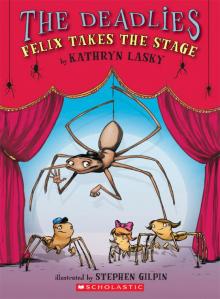 Felix Takes the Stage
Felix Takes the Stage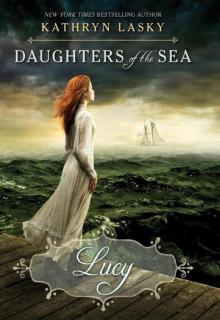 Lucy
Lucy Lone Wolf
Lone Wolf Broken Song
Broken Song The Shattering
The Shattering The Crossing
The Crossing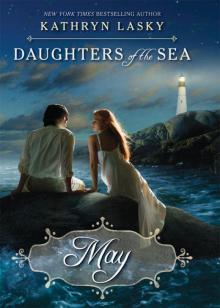 May
May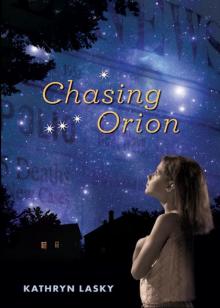 Chasing Orion
Chasing Orion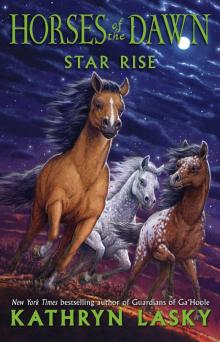 Star Rise
Star Rise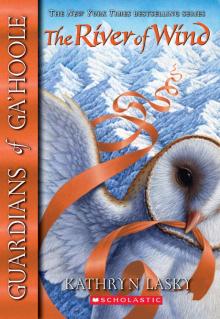 The River of Wind
The River of Wind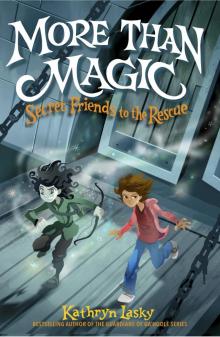 More Than Magic
More Than Magic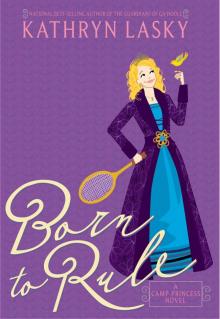 Born to Rule
Born to Rule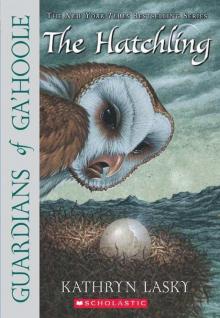 The Hatchling
The Hatchling The Rescue
The Rescue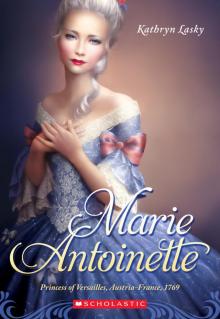 Marie Antoinette: Princess of Versailles, Austria - France, 1769
Marie Antoinette: Princess of Versailles, Austria - France, 1769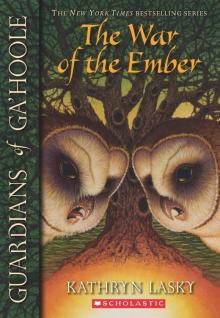 The War of the Ember
The War of the Ember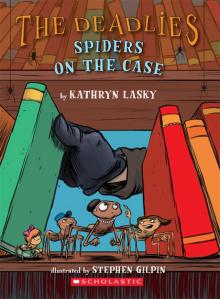 Spiders on the Case
Spiders on the Case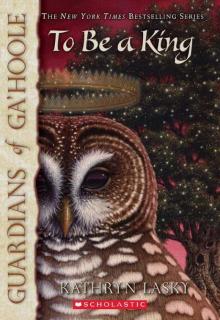 To Be a King
To Be a King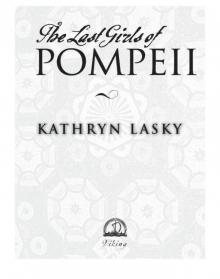 The Last Girls of Pompeii
The Last Girls of Pompeii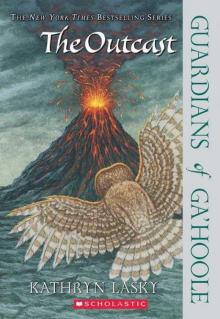 The Outcast
The Outcast Exile
Exile Night Witches
Night Witches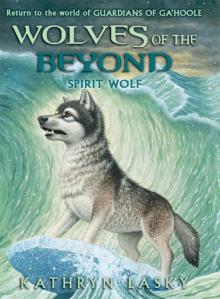 Spirit Wolf
Spirit Wolf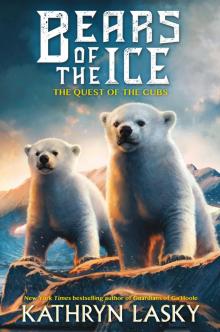 The Quest of the Cubs
The Quest of the Cubs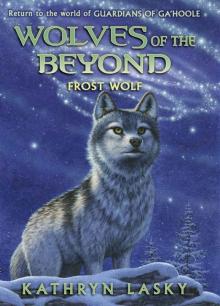 Frost Wolf
Frost Wolf The Keepers of the Keys
The Keepers of the Keys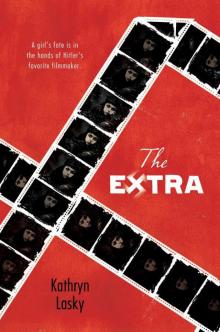 The Extra
The Extra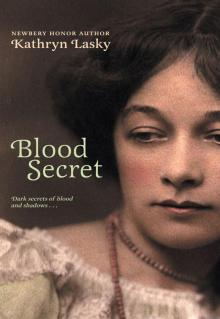 Blood Secret
Blood Secret Watch Wolf
Watch Wolf Blazing West, the Journal of Augustus Pelletier, the Lewis and Clark Expedition
Blazing West, the Journal of Augustus Pelletier, the Lewis and Clark Expedition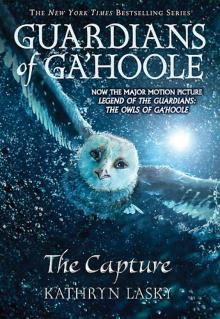 The Capture
The Capture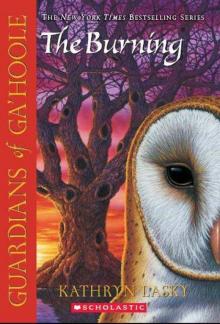 The Burning
The Burning The Journey
The Journey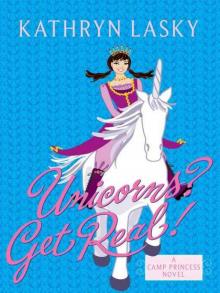 Unicorns? Get Real!
Unicorns? Get Real! The Escape
The Escape Star Wolf
Star Wolf Ashes
Ashes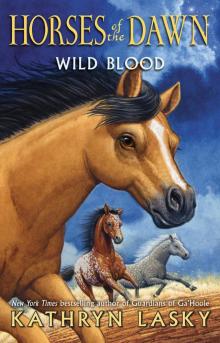 Wild Blood
Wild Blood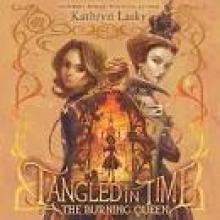 Tangled in Time 2
Tangled in Time 2 The Siege
The Siege Hannah
Hannah Elizabeth
Elizabeth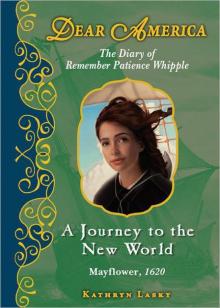 A Journey to the New World
A Journey to the New World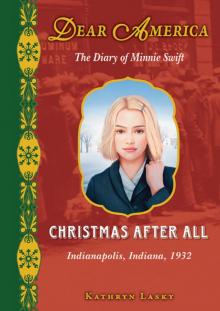 Christmas After All
Christmas After All Mary Queen of Scots
Mary Queen of Scots